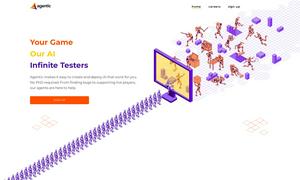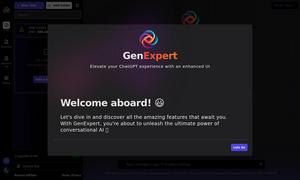ggml.ai

About ggml.ai
ggml.ai is a cutting-edge tensor library designed for efficient machine learning on commodity hardware. Its straightforward interface and features like automatic differentiation facilitate developers in crafting powerful applications. Targeting machine learning enthusiasts, ggml.ai revolutionizes on-device inference with its innovative approach to large model handling.
Pricing plans for ggml.ai include free access under the MIT license, encouraging community collaboration. Users can contribute to the codebase or support developers directly. Upgrading contributes to enhanced functionality over time while benefiting the broader community through the development of advanced features and support options.
ggml.ai features an intuitive user interface designed for seamless navigation and interaction. Its minimalistic layout ensures users can easily access vital tools and resources, promoting a smooth user experience. The straightforward design coupled with powerful features makes ggml.ai an attractive platform for machine learning developers.
How ggml.ai works
Users begin by accessing ggml.ai and downloading the lightweight library. Onboarding is simple, with comprehensive documentation to guide through initial setups. Once integrated, users can explore features like integer quantization and automatic differentiation while leveraging various projects such as llama.cpp and whisper.cpp to maximize performance and efficiency.
Key Features for ggml.ai
Lightweight Tensor Library
ggml.ai’s lightweight tensor library enables machine learning applications to run efficiently on commodity hardware. This unique feature reduces resource consumption, allowing developers to leverage powerful machine learning capabilities without the need for high-end infrastructure, maximizing accessibility and performance across diverse environments.
Automatic Differentiation
One of ggml.ai's standout features is its automatic differentiation capability, enhancing the efficiency of machine learning models. This feature streamlines the process of computing gradients, allowing developers to optimize their algorithms quickly, which significantly improves the overall performance and usability of applications built on ggml.ai.
Broad Hardware Support
ggml.ai excels with its broad hardware support, enabling developers to run applications on various platforms, including Mac, Windows, Linux, iOS, Android, and more. This flexibility ensures that projects can be executed wherever needed, maximizing the reach and effectiveness of machine learning solutions through ggml.ai.
You may also like:








